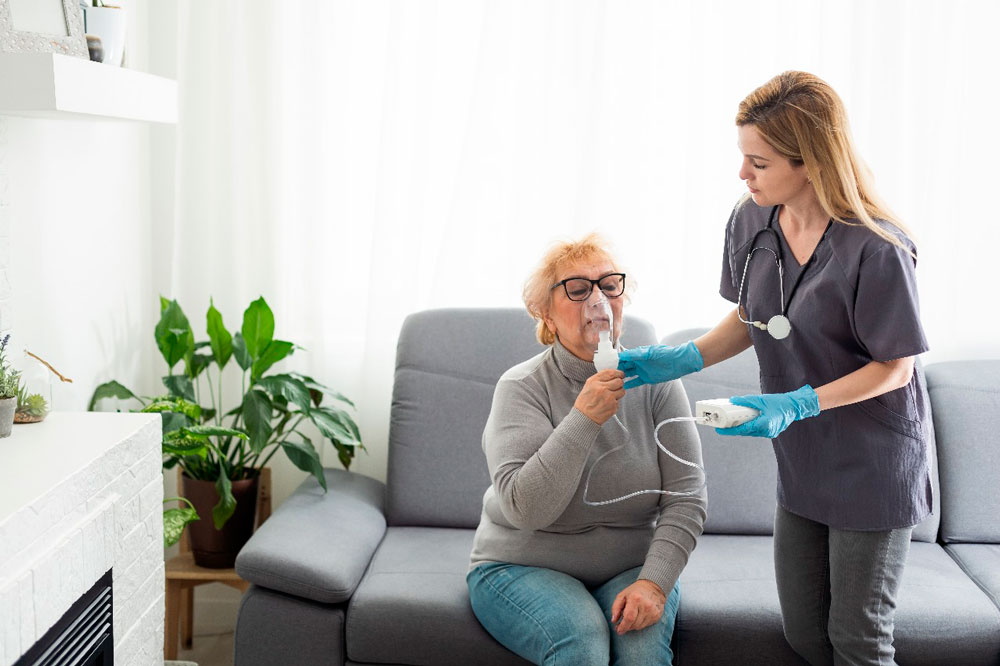Guatemala now has a pneumococcal vaccination program to benefit people aged 2 years and older with high-risk medical conditions
Guatemala. Pneumococci (Streptococcus pneumoniae) are bacteria that can cause infections (some serious) in many parts of the body, resulting in many cases of pneumonia, meningitis, bacteremia, otitis media, and sinusitis. These pneumococcal infections are a leading cause of morbidity, hospitalization, and death worldwide, with the highest incidence and severity in two age groups: children under 2 years of age and adults over 65 years of age.
Early diagnosis and treatment of severe pneumococcal infections is important because pneumococcal bacteria are spread from person to person through coughing, sneezing, and close contact. People can bring the bacteria into their noses and throats and spread them to others without getting sick. It is important to realize that the symptoms of this disease depend on the part of the body that is infected and include:
- Headache.
- Neck stiffness.
- Puzzled.
- Fever or chills.
- Difficulty breathing.
- Sensitive to light.
- Earache.
- cough.
- Chest pain.
- sore throat.
In the Americas, the incidence of pneumococcal infections in 2019 was estimated at 358 cases per 100,000 children. Among the causes of death caused by pneumococcal infection, pneumonia accounts for 81% and meningitis accounts for 12%. There are approximately 1.2 million cases of bacterial meningitis in children under 5 years old and 180,000 deaths each year.
Acute respiratory infections (ARI) are one of the leading causes of morbidity and mortality among children in Latin America. Pneumonia is the leading cause of death in young children in Guatemala, accounting for approximately one-third of pediatric outpatient visits.
Susceptibility to infections caused by pneumococcal bacteria affects everyone universally. However, certain conditions increase vulnerability to this bacteria, such as age, chronic illness, overcrowding, poverty, exposure to tobacco smoke, and upper respiratory tract infections. Of note, pneumococcal infections are most common in children between 2 months and 3 years of age but decrease after 18 months of age. However, after age 65 the risk increases again. Older adults are at greater risk for pneumococcal disease.
How to prevent this disease?
Vaccines are one of the measures to prevent pneumococcal disease. Guatemala has a pneumococcal vaccination program that benefits people over 2 years of age who are at risk for severe pneumonia, including individuals with illnesses that alter their immune systems and/or develop any chronic disease. The update stipulates that the vaccination schedule can vary from 1 to 3 doses, depending on the risk profile. Previously, the pneumococcal vaccination schedule was only available to girls and boys under 2 years old, with 3 doses given at 2 months, 4 months and 12 months respectively.
The only requirement for requesting vaccination is a physician-signed referral and/or prescription order, which must describe the patient’s diagnosis and vaccination history. It is free and administered during business hours and weekdays in all health centers in the country’s provincial capitals. The elderly and at-risk adult population will be able to receive the vaccine at the Guatemalan Social Security Institute (IGGS).
According to the Ministry of Public Health and Social Assistance, starting in January this year, vaccination will be offered to high-risk groups over the age of 2, especially those with the following diseases:
- There are serious problems at the level of the spleen, an organ that helps strengthen the body’s immune system.
- Chronic respiratory disease (obstructive lung disease requiring medication).
- Chronic heart disease (congenital or congestive heart disease at birth, and other conditions that cause complications and require medication).
- Chronic kidney disease (kidney failure, kidney transplant).
- Chronic liver disease (cirrhosis or chronic hepatitis).
- Type I and type II diabetes require medication.
- Immunosuppressive problems (leukemia, lymphoma, multiple myeloma, HIV, people receiving chemotherapy or radiation and steroid therapy).
- Splenectomy (removal of the spleen)
“As an internist and infectious disease specialist at Roosevelt Hospital, I unfortunately still see many patients with complications from pneumococcal disease, which is why I am calling out those who are eligible for the vaccine, whether due to age or risk factors , ask their doctor to give them a signed and stamped prescription noting the condition they are suffering from, and then find the nearest place where they can receive the benefits of pneumococcal vaccination. Remember, within the national health system The vaccines you receive are safe and highly effective, so you can be vaccinated with confidence to avoid serious consequences, hospitalization or death from pneumococcal bacteria,” said Dr. Nancy Sandoval, a Guatemalan infectious disease expert.
Vaccines reduce the chance of getting sick by strengthening the body’s natural defenses and helping it protect itself. By being vaccinated, a person’s immune system response is stimulated.
fountain.Merck

